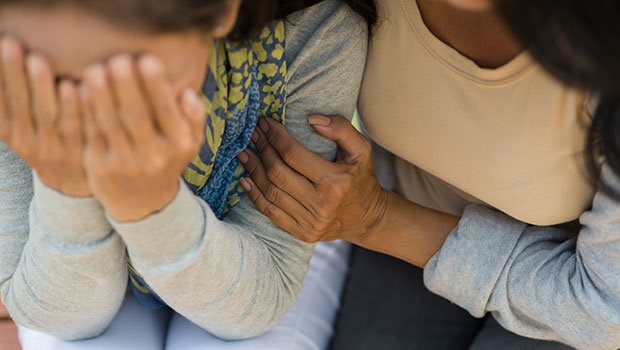
In 2010, People Opposing Women Abuse (POWA) made a video filming a complex where neighbours lived in close proximity. In the video, they tested whether neighbours were more likely to complain when loud music was played, or when they heard a woman being abused. The video showed that nobody came to the door when they heard a woman being abused.
Read more: Violence in South Africa – have we run out of empathy?
Many of you reading this will also have heard or witnessed some form of domestic violence in your lifetime. But for many of us, hearing or seeing domestic violence is so traumatic that we don’t intervene, either because we’re afraid or we don’t know what to do.
What is domestic violence?
Domestic violence is a broad term, including physical abuse, sexual abuse, emotional abuse, verbal and psychological abuse, economic abuse, intimidation, harassment, stalking, damage to property, trespassing when the parties don’t share the same residence, or any other controlling behaviour that causes or may cause imminent harm to the safety, health, or wellbeing of another person.
In 2017, the Department of Justice reported that there had been almost 400 000 civil complaints of domestic violence in the 2016/17 financial year, with almost a quarter of these cases involving physical abuse. It is estimated that every eight hours a woman is killed by her intimate partner in South Africa.
What can we do?
Intervening in a domestic violence encounter can put you at risk, which will not help anyone in the situation. Here is some advice on how you can best help your neighbour in both the short and long term.
Make sure you’re safe, then phone the police: If you hear or see domestic violence, call the police, who have a duty to respond to domestic violence complaints – if they don’t, it is an act of misconduct. The police should not tell your neighbours that you have called, rather that they have received a complaint.
Read up on the rights of survivors of domestic violence, and share your knowledge: The 16 Days of Activism for no violence against women and children is the perfect time to share information about our human rights to live free from violence with those in your neighbourhood, complex, hostel, school or residence.
Read more: 16 things you can do for 16 Days of Activism
Some of these rights include that domestic violence survivors have a right to get a protection order to prevent the abuse from continuing. Read up on this. If you live in a complex, or a residence/hostel, you could print a copy of this guide for every flat to ensure that every woman in the block knows their rights.
You can also share the Department of Justice’s guide on safety and domestic violence, or put up a list of the shelters in your area on your community notice board.
Seek advice from a local organisation close to you: There are many organisations across the country who can advise you on what to do, and where to refer your neighbour if she is being abused. This guide includes a number of useful contacts across the country, and the Shukumisa Coalition also includes many members who can support you.




 Publications
Publications
 Partners
Partners














